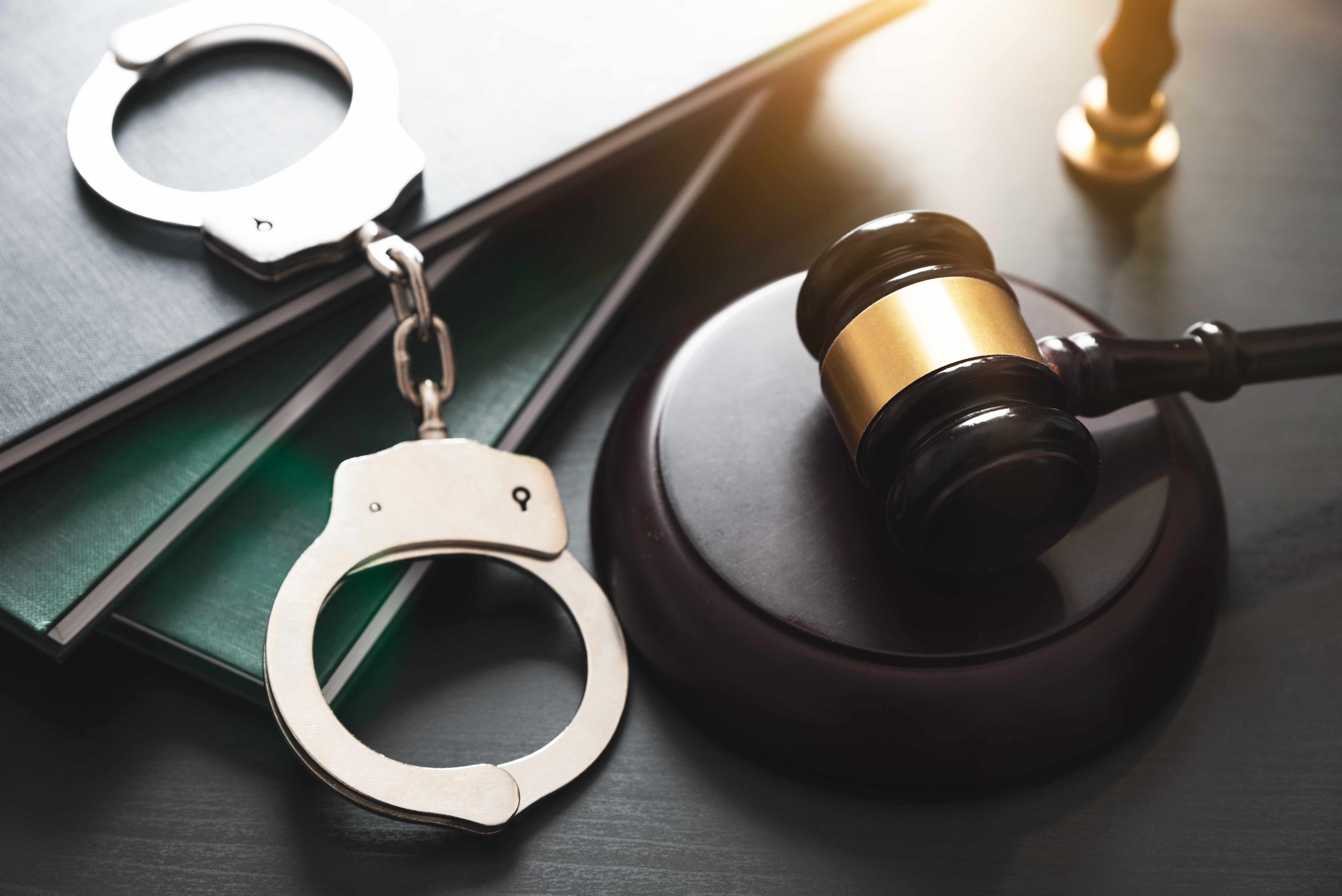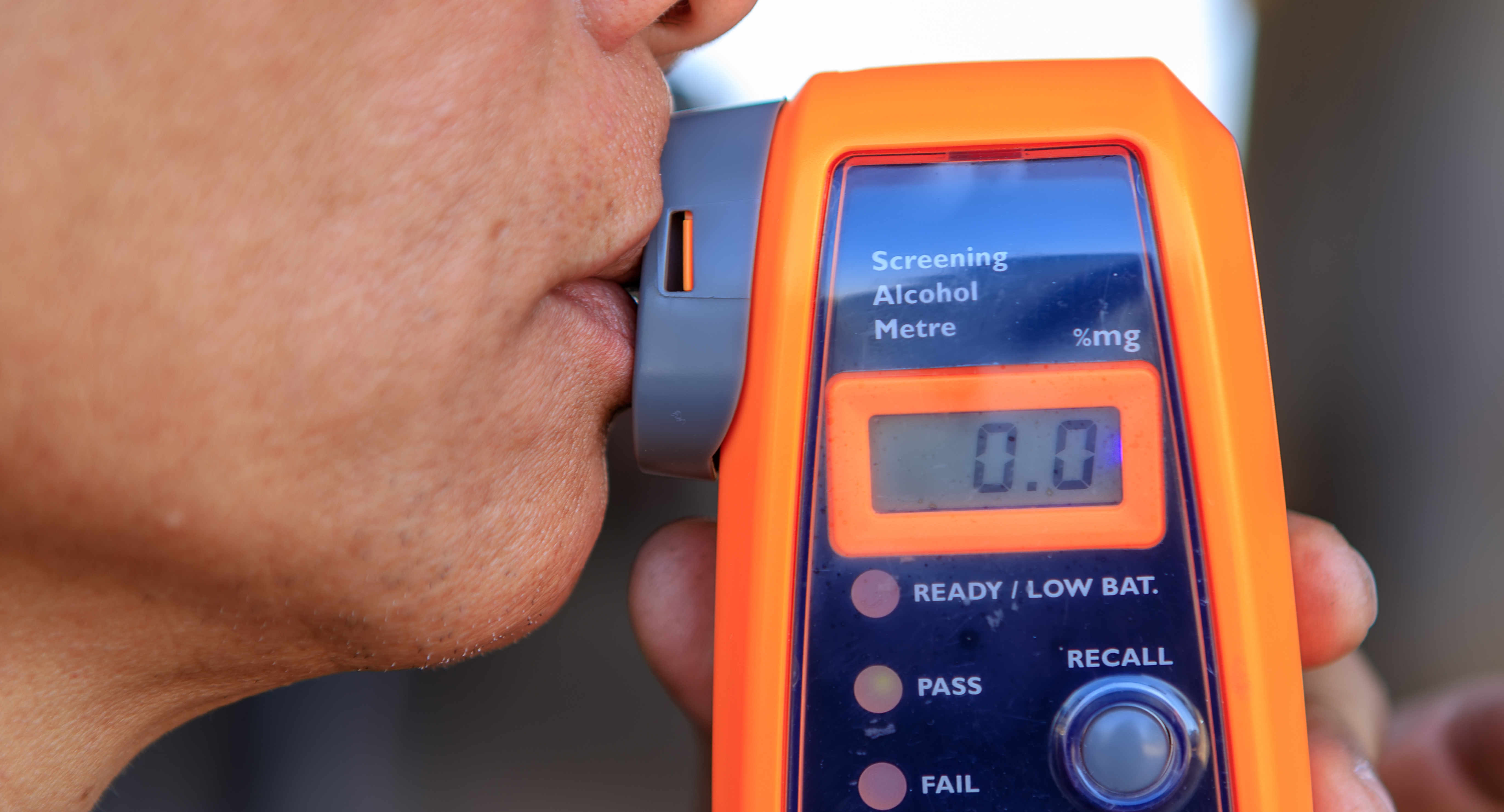The law in Texas recognizes people’s right to carry handguns for their own protection in certain circumstances. Unlawful carrying of weapons in Texas refers to situations in which a person carries a weapon illegally.
Unlawful carrying of a weapon generally results in a Class C misdemeanor, but it can become a felony of the third degree. In this article, we’ll give a thorough breakdown of the UCW law in Texas according to the Penal Code.
Unlawful Carrying of Weapon in the Texas Penal Code
Section 46.02 of the Texas Penal Code, titled Unlawful Carrying Weapons, is divided into six parts, each with its own subsections. Each subsection describes a violation of the law. Here’s a clear breakdown of each section.
Subsection (a)
Constitutional carry:
(a) A person commits an offense if the person:
(1) intentionally, knowingly, or recklessly carries on or about his or her person a handgun;
(2) at the time of the offense:
(A) is younger than 21 years of age; or
(B) has been convicted of an offense under Section 22.01(a)(1), 22.05, 22.07, or 42.01(a)(7) or (8) committed in the five-year period preceding the date the instant offense was committed; and
(3) is not:
(A) on the person’s own premises or premises under the person’s control; or
(B) inside of or directly en route to a motor vehicle or watercraft that is owned by the person or under the person’s control
Subsection (a-1)
Possession of a handgun in plain view inside a vehicle:
(a-1) A person commits an offense if the person intentionally, knowingly, or recklessly carries on or about his or her person a handgun in a motor vehicle or watercraft that is owned by the person or under the person’s control at any time in which:
(1) the handgun is in plain view, unless the person is 21 years of age or older or is licensed to carry a handgun under Subchapter H, Chapter 411, Government Code, and the handgun is carried in a holster; or
(2) the person is:
(A) engaged in criminal activity, other than a Class C misdemeanor that is a violation of a law or ordinance regulating traffic or boating; or
(B) prohibited by law from possessing a firearm.
Subsection (a-4)
Location-restricted knives:
(a-4) A person commits an offense if the person:
(1) intentionally, knowingly, or recklessly carries on or about his or her person a location-restricted knife;
(2) is younger than 18 years of age at the time of the offense; and
(3) is not:
(A) on the person’s own premises or premises under the person’s control;
(B) inside of or directly en route to a motor vehicle or watercraft that is owned by the person or under the person’s control; or
(C) under the direct supervision of a parent or legal guardian of the person.
Subsection (a-5)
Carrying a handgun in plain view in public places:
(a-5) A person commits an offense if the person carries a handgun and intentionally displays the handgun in plain view of another person in a public place. It is an exception to the application of this subsection that the handgun was partially or wholly visible but was carried in a holster.
Subsection (a-6)
Carrying a handgun while intoxicated:
(a-6) A person commits an offense if the person:
(1) carries a handgun while the person is intoxicated; and
(2) is not:
(A) on the person’s own property or property under the person’s control or on private property with the consent of the owner of the property; or
(B) inside of or directly en route to a motor vehicle or watercraft:(i) that is owned by the person or under the person’s control; or (ii) with the consent of the owner or operator of the vehicle or watercraft.
Subsection (a-7)
Prohibition of firearms:
(a-7) A person commits an offense if the person:
(1) intentionally, knowingly, or recklessly carries on or about his or her person a handgun;
(2) is not:
(A) on the person’s own premises or premises under the person’s control; or
(B) inside of or directly en route to a motor vehicle or watercraft that is owned by the person or under the person’s control; and
(3) at the time of the offense, was prohibited from possessing a firearm under Section 46.04(a), (b), or (c).
What Is Constitutional Carry in Texas and What Changed in 2021?
As of September 1st, 2021, Texans who can legally possess and carry firearms under state and federal law no longer need a License to Carry in order to carry firearms in public places, providing they also meet the following criteria:
- Be 21 years or older
- Not have a prior felony conviction as described (Texas Penal Code Section 46.04)
- Not have a recent conviction for certain misdemeanors (Texas Penal Code sections 46.02 and 46.04)
- Not be subject to an active protective order (Texas Penal Code Section 46.04(c))
- Not be intoxicated unless on their own premises or property
Before the passage of the House Bill 1927, only those with a license to carry were able to carry a handgun in public spaces. That said, there are some locations where carrying firearms remains prohibited, including:
- Schools
- Educational institutions
- Polling locations on the day of an election or while early voting is in progress
- On the premises of any government court, unless authorized in writing
- On the premises of a race track
- In or into a secured area of an airport
- On the premises of businesses that sell alcoholic beverages and derive 51% or more of their income from the sale or service of alcohol
- On the premises of a correctional facility
- On the premises of a civil commitment facility
- Hospitals and nursing facilities
- In an amusement park
- Government meeting rooms
Categories of People Exempt From the Texas Unlawful Carry Law
The Penal Code states that some categories of people are exempt from the UCW law. This exists to protect situations where people are required to carry weapons as a part of their employment, as well as other legitimate circumstances.
Section 46.15 of the Texas Penal Code exempts:
- Law enforcement and court officials, and some volunteer emergency personnel
- Certain military members
- Security officers
- Personal protection officers
- CHL (concealed handgun license) holders
- Alcoholic beverage permit holders
- Law enforcement students (under some circumstances)
The Interaction of UCW Law With CHL and LTC in Texas
Back when Texas only allowed the concealed carrying of handguns, the permit to carry was called a Concealed Handgun License, or CHL. An Open Carry law was passed in 2017 to allow those who were granted a License to Carry, to “open carry” their handguns in public spaces.
When the new law passed in 2021, it meant that anyone who was legally eligible to own and possess a firearm would no longer need an LTC, but you can still get one.
The Texas Department of Public Safety lists several benefits to getting a LTC, despite the fact you don’t need one. One benefit of having an LTC is the exemption offered under Texas Penal Code section 46.15, “Nonapplicability”.
It states that UCW does not apply to someone who:
(6) is carrying:
(A) a license issued under Subchapter H, Chapter 411, Government Code, to carry a handgun; and
(B) a handgun:(i) in a concealed manner; or (ii) in a holster;
“Criminal Street Gang” Term in Texas UCW Law
Texas Penal Code section 46.04, unlawful possession of a firearm, states the following:
(a-1) A person who is a member of a criminal street gang, as defined by Section 71.01, commits an offense if the person intentionally, knowingly, or recklessly carries on or about his or her person a handgun in a motor vehicle or watercraft.
“Criminal street gang” is defined as “three or more persons having common identifying sign or symbol or an identifiable leadership who continuously or regularly associate in the commission of criminal activity.”
Defenses to Unlawful Carrying Weapon Charge in Texas
As you may have probably guessed by now, the UCW law in Texas is complex, but one of the most important defense strategies is to challenge whether the person accused carried a weapon “intentionally, knowingly, or recklessly,” which the state has to prove in order for a conviction to be passed.
Many UCW charges in Texas are brought about by DWIs. If the two cases are related, it’s essential that you win your DWI case, which would result in a UCW charge being dropped.
Consequences of Unlawful Carrying Weapons (UCW) in Texas
For a straightforward UCW, most convictions result in a Class A misdemeanor. For an offense mentioned in subsection (a-4), “location-restricted knife”, the punishment is a Class C misdemeanor.
Some offenses can receive harsher punishment. If a person who is prohibited from carrying firearms is convicted of UCW (subsection a-7), they may end up with a second or third-degree felony.
Punishments are as follows:
- A Class C misdemeanor is punishable by a fine of up to $500.
- A Class A misdemeanor is punishable by a fine of up to $4,000, and/or up to 1 year in jail.
- A third-degree felon is punishable by a fine of up to $10,000, and between 2 and 10 years in jail.
- A second-degree felony is punishable by a fine of up to $10,000, and between 2 years and 20 years in jail.
As harsh as these punishments for UCW sound, we haven’t listed the collateral damage and difficulties that so often come with getting convicted. If you’re facing a UCW charge, stop wasting time. Contact an experienced lawyer and start working on your defense case today.




